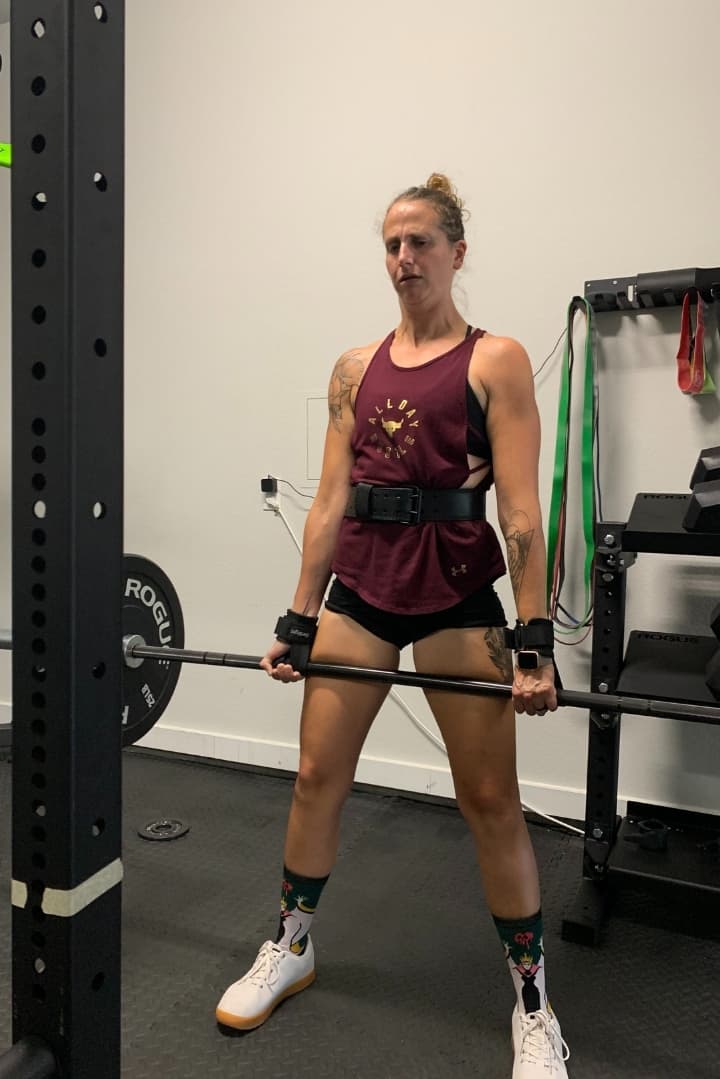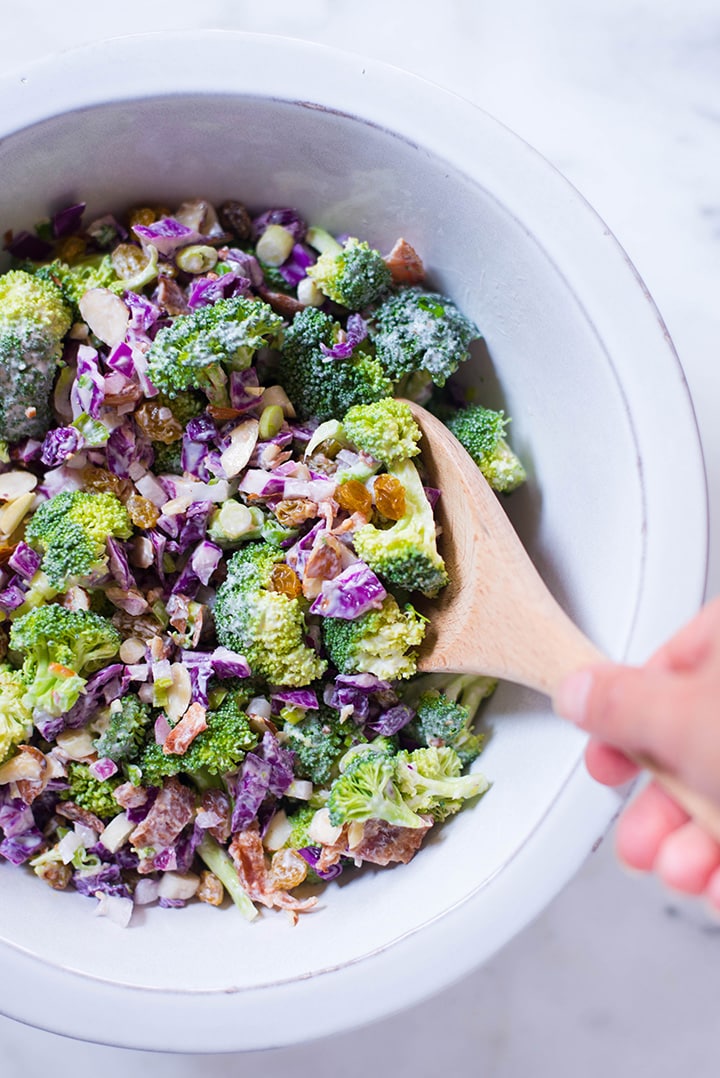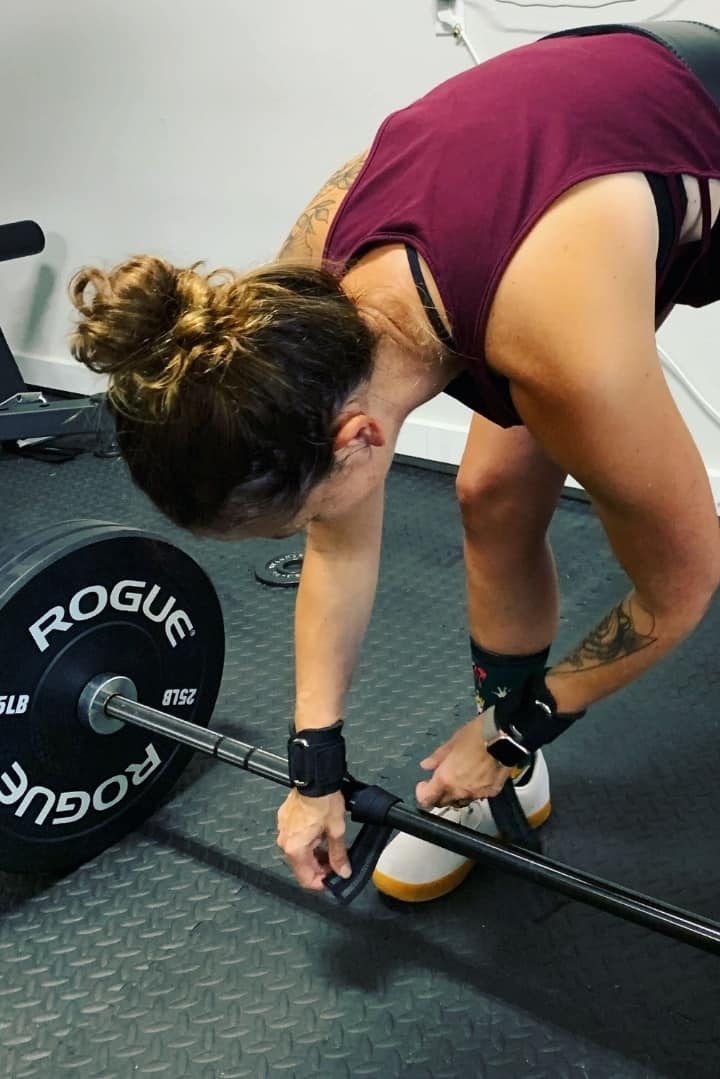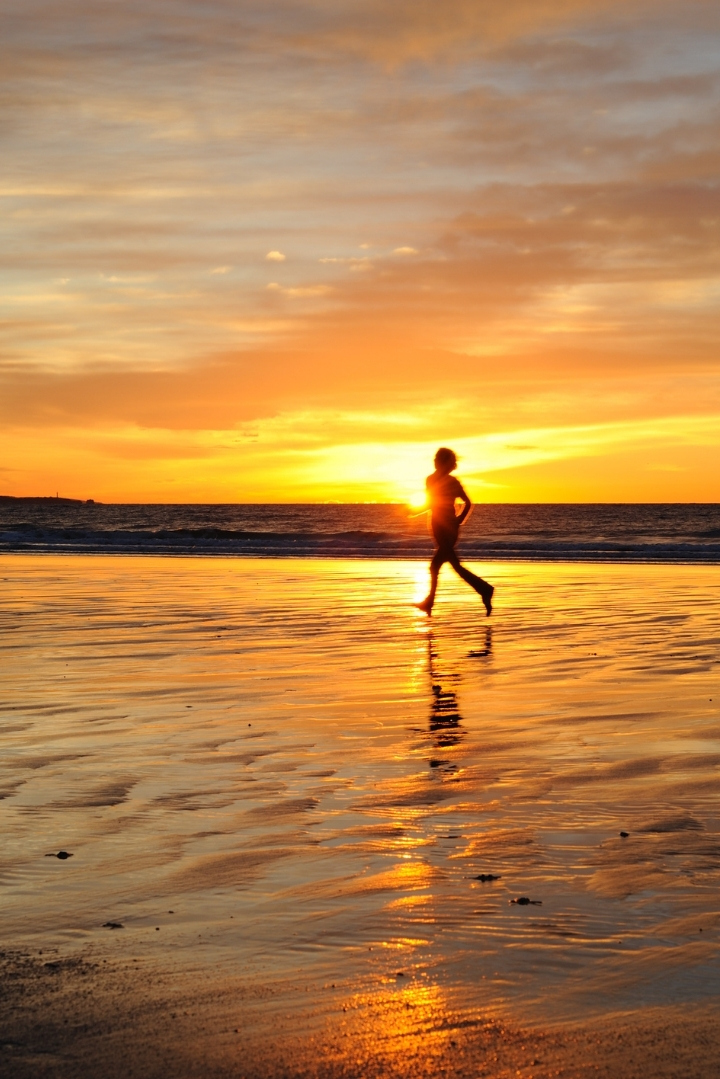Are you up at the crack of dawn ready to hit the gym? Or do you like to end your day with an invigorating workout before you wind down for the day? Learn the best time to work out and which type of exercise is most effective in reaching your goals.
Y’all know that I am big into exercise. I’ve always enjoyed being active, but I wasn’t working out in the best way for me, and along with that, I wasn’t eating healthy either. I was no stranger to milkshakes and pizza in my younger days and used to eat a lot of junk. That turned into a lot of weight gain, and I struggled for years to get back on track.
But I did – and I am pretty proud of it. But even more than the pride are the benefits to my well-being as a person. I’ve got more energy and a better outlook on life. My self-esteem is better, and I'm happy I get to share what I’ve learned on this journey with you.
One of the questions I get asked a lot is about exercise. When is the best time to work out? I’ll tell you what I’ve learned about exercise as I've made healthy changes to my lifestyle and the peak times for doing it.
THE BENEFITS OF EXERCISE
I think one of the best benefits of exercise is just the boost to overall well-being, like I mentioned before. Knowing that you are moving beyond a sedentary life and taking the time to do something for your health is super good. Other benefits are:
- Exercise can help your sleep quality and sleep time
- Exercise is good for your skin
- Being active is good for the brain and reduces the risk of illnesses like Alzheimer’s
- Regular activity lowers the chance of disease like type 2 diabetes and cardiovascular disease
- Exercise gives you energy, boosts mood, and aids in quality of life, even in those who have medical conditions
- Your muscles and bone density are maintained through exercise as you age
- Exercise can help with weight loss

BEST TYPE OF EXERCISE TO BURN FAT
There are a few types of exercise that help calorie burn and, ultimately, fat loss.
- HIIT: High-intensity interval training keeps you burning calories even after the workout is over. When the exercise is intensive, post-exercise oxygen consumption is maximized, resulting in fat burning.
- Cardio: Whether low or moderate in intensity, cardio like swimming and walking burn fat while being less stressful on the body than an intensive workout.
- Resistance training: Resistance training primarily builds muscle, but it also helps you burn calories (and fat) at rest.
- Yoga and pilates: Pilates is excellent for core strength and posture. Yoga will improve your balance and flexibility. Because both forms of exercise put an emphasis on stress release, they are grouped as a fat loss exercise. Stress is known to cause weight gain, and that is why these two exercises fight fat.
BEST TYPE OF EXERCISE TO BUILD MUSCLE
Resistance training is hands-down the best exercise for gaining muscle, and I’ll explain why.
- Resistance training: Circuit-style sessions, with little rest in between, burn calories while building muscle. How does resistance training help you build muscle? Because your muscles are working against a force, they overload in a sense. The muscles add strength and size to handle the load.
Resistance training doesn’t mean always lifting weights like dumbbells and kettlebells (although they are great). There are plenty of ways to get resistance training in:
- Resistance bands
- Working out against the resistance of water in a pool
- Pushups and pullups
- Using your own body weight for tasks like the plank and squats
This type of exercise really revs up your metabolism, which, in turn, helps you burn calories. Changing up your workout to involve multiple areas of the body is an excellent way to give the metabolism a boost.

IS IT BETTER TO EXERCISE ON AN EMPTY STOMACH?
It’s really best to trust your body signals about whether you should exercise on an empty stomach. Why do I say this?
Well, everyone has a different response to working out on an empty stomach. While some people will feel light-headed and nauseous when exercising on an empty stomach, others find that they feel light and less sluggish.
However, something really important to keep in mind when deciding whether to work out before breakfast is the type of exercise you will be doing. Going for a run or swimming laps? That may be a different story, with a need for healthy food in your body to give you strength and endurance. If you are working out longer than an hour, you may need to eat beforehand to keep your blood glucose levels regular.
And, if you have a health issue, like diabetes or a thyroid condition, check with your doctor to make sure you are eating as you should at any time you exercise. The same goes for low or high blood pressure.

WHAT IS FASTED CARDIO?
Fasted cardio isn’t necessarily working out on an empty stomach from the night before. And fasted cardio does not mean that it takes place only in the morning.
Let me delve into that a bit further. We typically think that working out when fasting means working out without eating.
It’s a bit more involved than that – when you train fasted, it means that your body is not in the process of still digesting your previous meal. Your insulin levels are at their resting level (not elevated and not low).
Our bodies typically enter a fasted state 3 to 6 hours after a meal, depending on what the meal consisted of and how much you ate. If your meal was full of healthy fiber, it takes longer to digest, for example. Add in good-for-you protein and full-fat diary for an awesome meal that ticks all the boxes for health.
However, and a big however here, if you want to be sure that you are doing a fasted cardio workout, you will want to work out in the morning before you eat. When you do work out before your first meal of the day, studies prove that fasted cardio burns more body fat than you would if you had eaten.

IS IT OKAY TO WORK OUT WHEN INTERMITTENT FASTING?
Yes, it is definitely okay to work out when fasting, and doing so can give you a boost for building lean muscle mass. The body burns fat and weight loss results. There is something important to remember, though. You still need to watch your calorie intake, and the quality of food you eat when you break your fast can affect your ability to lose fat and build muscle. Read all about it here, including the benefits of fasting.
You’ll want to plan your workouts according to how you feel. Never exercise when fasting if you feel light-headed or weak. Remember, it also depends on what type of exercise you plan to do. If it’s a weight training day and you haven’t yet eaten, you’ll most likely do just fine.
But if this is the day you have planned for your weekly long run, and you haven’t had a meal in 12 hours, you may want to rethink it. Remember to stay hydrated (I love an apple cider vinegar drink!) and listen to your body. Don’t continue if you feel unwell.
A struggle to perform when fasting is a problem that some people encounter, so if that’s you, then simply change your workout time to after a meal. It can still be morning, afternoon, or evening.
I love my intermittent fasting lifestyle. It fits in well with my personal workout schedule and my work hours.
But, before taking on an intermittent fasting eating regimen, make sure you understand it and how it works. Look at the alternatives for fasting schedules, and figure out which one will work for you and allow you success.
I explain it in great detail in my post, Intermittent Fasting For Women: A Complete Guide.
Take a look, and if you have more questions, you’ll find the answers in my video 9 BIGGEST Intermittent Fasting MISTAKES (And How to Avoid Them!).

WHAT IS THE BEST TIME TO WORK OUT?
The best time to exercise is the time that you can fit in into your schedule. I’m serious here. We’ll go a little bit into the science of the best time to work out, but when it comes right down to it, exercising several times a week when you can is better than not moving at all. Staying sedentary has its dangers, like a higher risk of cardiovascular disease and cancer. Depression, diabetes, and stroke are other problems you may encounter.
Both morning and evening workouts have their good and bad points. Let’s take a look.
PROS OF WORKING OUT IN THE MORNING
For some, it’s a simple matter of logistics to exercise first thing in the day, shower, and then head to work or other activities. An increase in energy and brain productivity for the day is experienced by some, again making a case for morning workouts.
If you want to work out in a fasted state, exercising in the morning before breakfast makes it easier because you know that your body is in fat-burning mode.
Some people choose the morning to exercise instead of the afternoon or evening because of the potential to affect their sleep. However, studies show conflicting results, pointing to the fact that sleep interruption is an individual thing.
One way to make sure you exercise no matter what time of day is to find an exercise you like. Whether you exercise at home (like me during COVID) or in the gym, being motivated to move because you enjoy it is half the battle.
Lastly, as a pro to morning workouts, it is easy to be consistent because you exercise upon waking, making it a healthy habit.
I’m not going to call them “cons of working out in the morning” because any workout is a good one, but some may feel these points have validity. Your physical performance, due to stiff joints and muscles, may be lower than later in the day. And when warming up, it may take longer.

PROS OF WORKING OUT IN THE AFTERNOON OR EVENING
For many people, the best time to work out is later in the day. Besides having more time to sleep in, there is evidence that peak performance may be in the afternoon. This is because your body temperature is higher, and you’ll need less of a warm-up to get to maximum performance.
If you are running on the treadmill or doing bursts of high-intensity interval training, the afternoon can prove to be a time when an injury is less likely. Why? Your blood pressure and heart rate are at their lowest for the day. Your reaction time may be quicker, too. Test the theory with a game of squash!
Testosterone, although production is higher in the morning, is thought to be more responsive to resistance training in the late afternoon. This hormone is important for muscle building.
Because exercise is good for the mood, evenings are the best time to work out for some people because it enables them to relax before bed.
If you are looking for resistance training and want to work out in the evening after work, remember that you can easily do the exercise at home by doing lunges, planks, pushups, and squats. For high-intensity interval training, try a set of 20 jumping jacks, 10 pushups, and 10 squats. Rest 30 seconds and repeat.
Like before, it is tough to come up with “cons to working out at night.” Sleep interference may deter some, although there really isn’t a lot of science to back that up. On the consistency front, many people lose their drive to exercise late in the day, especially if fatigue is a factor, or it’s dark and cold.
This post contains affiliate links to products I use regularly and highly recommend.



Donna
Enjoyed the article. It helped me learn a lot about why I’m having difficulties losing weight on my keto and fasting. I’m up 2 pounds then down one. Up one then down 2 pounds. Basically getting no where. I’m eating healthy and I’m positive I will lose the weight, not stressing. Most people would start stressing over the fact that they’re not losing weight. But there’s other factors; am I diabetic, yes. Do I have a fatty liver yes. So I believe some of that comes into play as well. Once again, a great article.